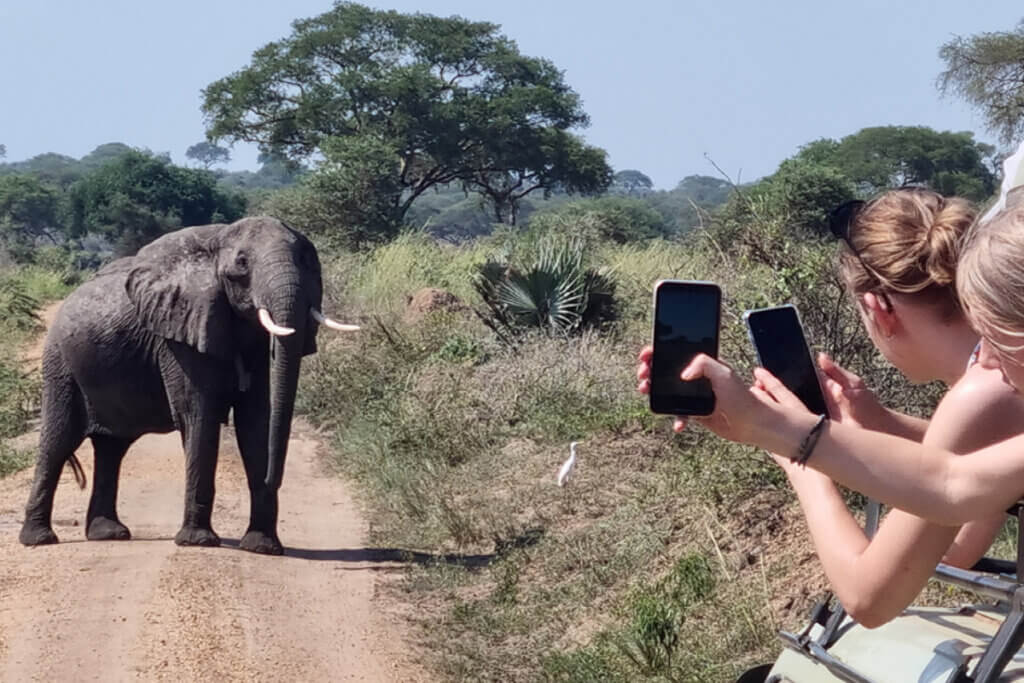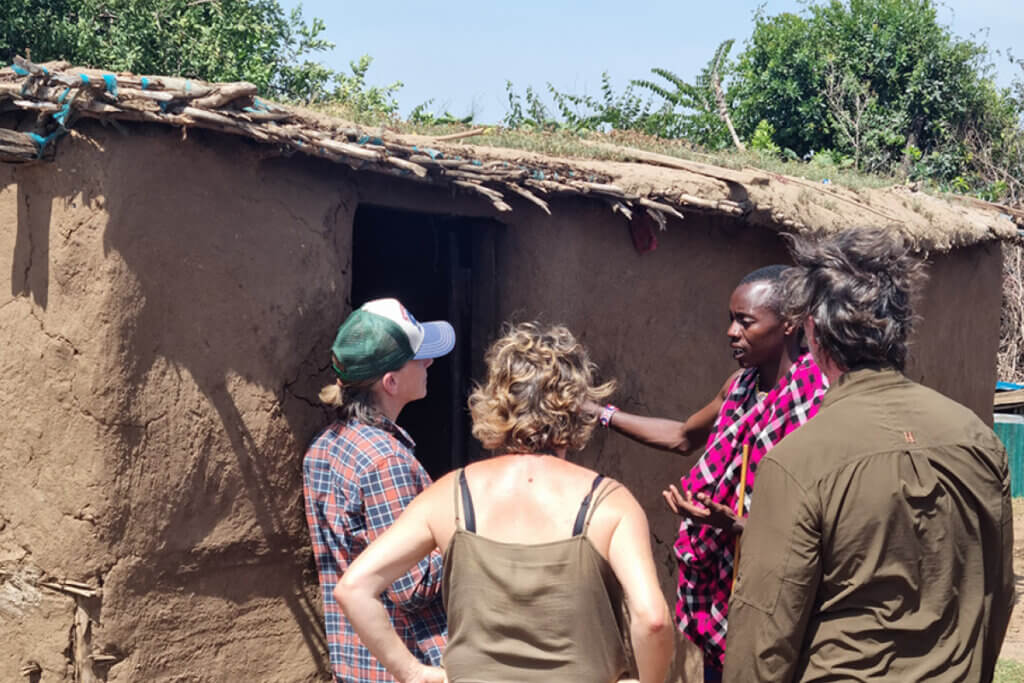The sun rises over the savannah, painting the horizon in gold. A lion’s roar echoes in the distance while elephants move quietly through the grass. This is East Africa — a place where nature speaks, and you listen. Every safari tells a story. Whether it’s tracking lions through golden plains, meeting communities untouched by mass tourism, or watching hippos at sunset, African safari tours in East Africa invite you into a world of wonder and connection.
In this guide, we’ll show you what to expect: from landscapes to wildlife, from comfort levels to authentic encounters. It’s your introduction to the heart of East Africa.

A safari tour in East Africa is not just a trip — it’s an immersive journey guided by local experts who know every trail, bird call and paw print. In East Africa, safaris range from half-day drives to multi-day adventures across vast savannahs, lush rainforests and volcanic highlands.
Travel often takes place in 4×4 vehicles with open roofs for the best views. Accommodation can be as simple as a campsite or as luxurious as a boutique lodge, but the essence is the same: wildlife, discovery and the rhythm of nature.
Uganda – The Pearl of Africa
A land of contrasts: crater lakes, tropical forests, and sweeping savannahs. Here, you’ll find the thundering Murchison Falls, the plains of Queen Elizabeth National Park, and the remote wilderness of Kidepo Valley National Park. Uganda is also home to unforgettable primate encounters — chimpanzees in Budongo, or gorillas in the misty mountains.
Rwanda – Land of a Thousand Hills
Intimate and mountainous, Rwanda offers safaris with emotional depth. The highlight is Volcanoes National Park, where gorilla trekking is a life-changing experience. Akagera National Park adds classic game viewing, while Lake Kivu offers serene moments in between.
Kenya – Home of the Great Migration
Kenya’s open plains and immense herds have become iconic. The Maasai Mara stages the Great Wildebeest Migration, while Amboseli offers postcard views of elephants beneath Mount Kilimanjaro. Samburu and Tsavo reveal wildlife unique to their regions, from gerenuks to red elephants.


This is why travellers come — and East Africa never disappoints.
The Big Five:
Beyond the Big Five
Expect giraffes silhouetted against the sunset, zebras on endless plains, hippos and crocodiles along the rivers, and over 1,000 bird species — from shoebill storks to eagles. Primates add to the diversity: colobus monkeys in the forests, golden monkeys in Rwanda, and even tree-climbing lions in Uganda. Every safari sighting feels like a new chapter in your own story.
Every traveller’s safari looks different — it can be adventurous, cultural, or a mix of both. Options include:
Whether you prefer private tours with full flexibility, group safaris with shared experiences, or tailor-made journeys that combine nature, culture and adventure — East Africa makes it possible.
Health & vaccinations
Yellow fever vaccination is often required, and malaria prevention is recommended. Always check the latest requirements.
Packing essentials
Bring neutral-coloured clothing, binoculars, a good camera, sunscreen, insect repellent, a reusable water bottle and a power bank.
Best time to travel
Dry seasons (December–February and June–August) are most popular, but wildlife can be spotted year-round.
To travel in East Africa you’ll need a valid visa. The most convenient option is the East Africa Tourist Visa, which allows you to move freely between Uganda, Rwanda and Kenya on a single visa.
If you’re visiting just one country, you can also apply for a single-entry visa. Each country has its own online application portal:
Uganda: Uganda E-immigration System
Rwanda: Rwanda E-Visa Portal
Kenya: Kenya Online Portal for ETA
We recommend applying at least 2–3 weeks before your travel date. All applications are completed online, and approvals are usually granted within a few days. Remember to carry a printed copy of your visa confirmation when you travel.

A safari tour in East Africa is more than ticking off animals from a checklist. It’s about the thrill of a lion’s gaze, the laughter shared with a guide, the warmth of a village welcome. Every day offers a new story — from dawn game drives to nights under a star-filled sky.
As one traveller put it: “I came for the animals, but I left with stories I’ll never forget.”